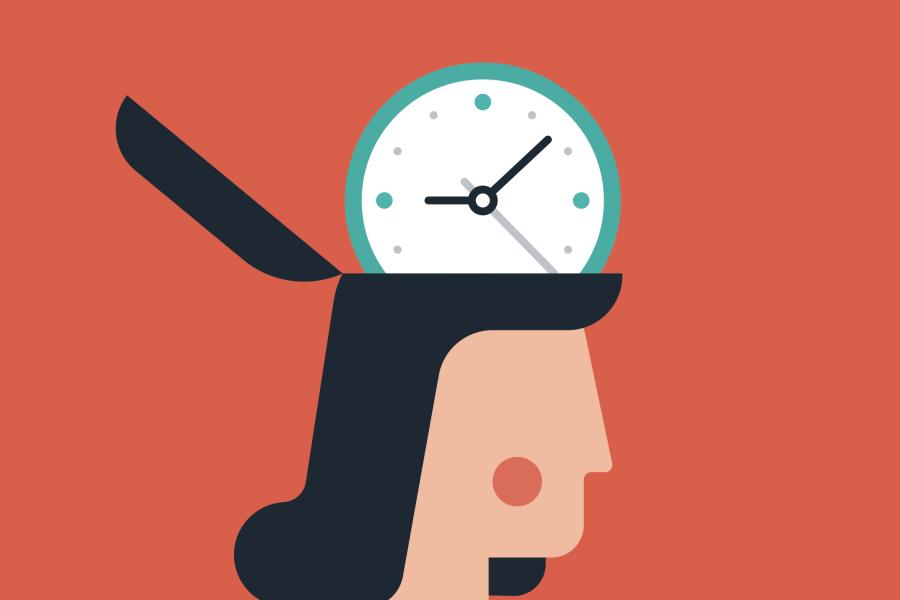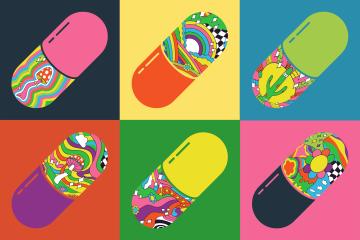Parents don't need a neuroscientist to tell them that infant brains are like little sponges, voraciously absorbing information from the surrounding environment. From birth to age 3, a child learns to sit, stand, walk, use their hands, and speak, mostly through mimicry. From ages 3 to 6, humans develop more advanced skills such as sequencing—"first comes dinner and then a bath and then it's story time"—and the recognition of shapes and sounds.
These first few years of life are filled with what neuroscientists call critical periods of brain development, during which experiences—strong parental attachments, exposure to written and spoken language, social interactions—effectively sculpt neural pathways in ways that are difficult to un-sculpt. The phenomenon of critical periods, these plastic and exceptional learning windows in the brains of mammals, was first observed in the 1930s in snow geese. Today, we know that critical periods in the brain open and close and that they are not limited to one phase in development.
The critical period for a human to learn language, for example, is before the onset of puberty, while the one for vision closes earlier. These critical periods can reopen as adults, as evidenced by a person's ability to relearn motor skills the first few months after a stroke. But critical periods all close. Neuroscientists have long searched for ways that might unlock the brain again to this open state, where it is more sensitive to signals from our surroundings and can be rewired. Turns out, psychedelics may hold the key.
Researchers at Johns Hopkins Medicine say a new study in mice shows that psychedelic drugs, including MDMA and psilocybin, can reopen critical periods—from two days to four weeks—with a single dose.
The findings, published in June in the journal Nature, offer a new explanation for how psychedelic drugs work and suggest their potential to treat a wide range of conditions, such as stroke and deafness, by effectively reopening doors that were thought closed.
"There is a window of time when the mammalian brain is far more susceptible and open to learning from the environment," says Gül Dölen, an associate professor of neuroscience at the School of Medicine and co-author of the study. "The way I explain it is the adage that you can't teach an old dog new tricks because there are critical periods."
These periods exist, Dölen says, because there just isn't enough space in the genome to encode every single behavior that we might need in life. "And so, what the genome encodes instead is the ability to learn from the environment. You encode the ability to learn a language and then you learn the one that's relevant to whatever environment you're growing up in."
Critical periods close, Dölen says, because it's expensive energetically to be in that state of constant learning all the time, experiencing the world in a fresh, living-in-the-moment way.
This study builds on her laboratory's 2019 study, also published in Nature, which demonstrated for the first time the critical period for social behavior, which Dölen likens to the hierarchical cultural rules. "Teenagers are very open to this kind of social learning and that's why they're so much more susceptible to peer pressure, whereas adults don't care—or care less—what peers think about them," Dölen says.
Knowing that the psychedelic MDMA (commonly known as ecstasy) has a very powerful prosocial component and arouses feelings of love, Dölen's team wondered whether the drug could reopen this critical period of social learning. It did. But her team was surprised, she says, to find in this new study that other psychedelic drugs without prosocial properties also reopen critical periods.
The Hopkins researchers looked at the potential of five psychedelic drugs—ibogaine, ketamine, LSD, MDMA, and psilocybin—to reopen the brain to learning. These drugs have been previously shown in numerous studies as able to change normal perceptions of existence and enable a sense of discovery about oneself or the world.
The team trained mice to develop an association between an environment linked with social interaction and another environment connected with being by themselves. By comparing time spent in each environment after giving the psychedelic drug to the mice, the researchers were able to see whether the critical period opened in the adult mice, enabling them to learn the value of a social environment—a behavior normally learned as juveniles.
For mice given ketamine, the critical period of social reward learning stayed open for 48 hours. With psilocybin, the open state lasted two weeks. For mice given MDMA, LSD, and ibogaine, the critical period remained open for two, three, and four weeks, respectively. The team discovered that psychedelics sparked metaplasticity and the reorganization of the brain's extracellular matrix (the space between neurons), two main mechanisms associated with the opening and closing of critical periods.
"The fact that all these drugs worked was incredible, and more evidence that they're the master keys for restoring this malleability of juveniles to adult brains. That's a really big deal."
Dölen cautions that psychedelics aren't going to be used anytime soon to help you learn Spanish in time for your trip next summer. Instead, the team plans to focus on the potential to use psychedelics to help those with traumatic brain injury and stroke symptoms. There are 400,000 stoke patients every year who are unable to recover full motor abilities and have impairments such as slurred speech or the loss of mobility. "Often, people don't get enough or the right kind of physical therapy that they need right after the stroke and then that window of opportunity closes," she says. "And so, the idea is that we could go back to people who had a stroke—six months, a year, or even 10 years ago—and pair a psychedelic with the right context, like during rehab."
Dölen believes that neurology will benefit from this study in a "huge way," she says. "Understanding the clinical period mechanism opens the door to such things as psychedelic-assisted physical therapy. It's truly exciting and where we're going next."
Posted in Health
Tagged psychedelics, psilocybin, ketamine









